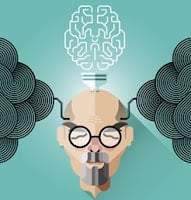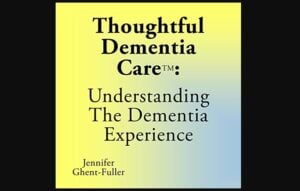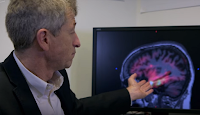An expert panel convened by the Institute of Medicine provided recommendations to enhance cognitive health, while also clarifying the distinctions between Alzheimer’s and related dementias. An article in Annals of Internal Medicine highlighted they key points of that report; it serves as a guide for health care professionals seeking to improve the quality of life of older adults by maintaining brain health.
Cognition
Practitioners define “cognition” as mental functions encompassing
- Attention,
- Thinking,
- Understanding,
- Learning,
- Remembering,
- Problem solving,
- Decision making.
As a person ages there is a gradual, but marked change in these cognitive functions, which is referred to as “cognitive aging.”
Cognitive Aging
“Cognitive aging is not a disease or a level of impairment–it is a lifelong process that affects everyone,” explains lead author Dr. Sharon K. Inouye, Director of the Aging Brain Center at the Institute for Aging Research, Hebrew SeniorLife in Boston, Massachusetts and Professor of Medicine, Harvard Medical School. “Given the sizable number of adults approaching older age, understanding the impact of cognitive aging has become a significant health concern.”
Older adults seem to share the same concern about their health as a survey by the AARP found that 93% of respondents said maintaining brain health was a top priority. In response, the Institute of Medicine committee created recommendations that focus on prevention and intervention opportunities, seek to educate health care practitioners, and help raise public awareness of cognitive health.
Brain Health
Action areas for practitioners include:
- EARLY DIAGNOSIS: Conduct a formal cognitive assessment to detect cognitive impairment
- RISK SCREENING: Screen for risk factors such as alcohol use, smoking history, and diet
- PREVENTION & THERAPY: Promote benefit of physical exercise, lifelong learning, social engagement and adequate sleep
- TREAT RELATED CONDITIONS: Highlight importance of reducing cardiovascular risks such as hypertension and diabetes
- HAZARD WARNINGS: Identify persons at high risk for delirium before or at hospital admission and institute preventive strategies
- DRUGS: Minimize prescription of inappropriate medications
The article also covers cognitive health as it relates to:
- Driving safety,
- Financial decision-making,
- Use of nutraceuticals,
- Effectiveness of brain games among older adults.
Dr. Inouye summed up, saying,
“There is still more to learn about the biological process involved with cognitive aging, but there are interventions that can be made now. Health care professionals play a vital role in working with older patients and their caregivers to maintain optimal brain health.”
REFERENCE:
- Enhancing Cognitive Aging: Clinical Highlights of a Report From the Institute of Medicine; Sharon K. Inouye, MD, MPH
SOURCE:











